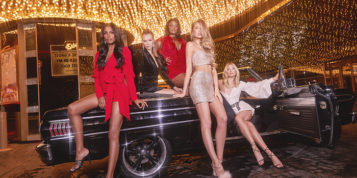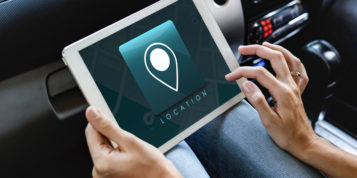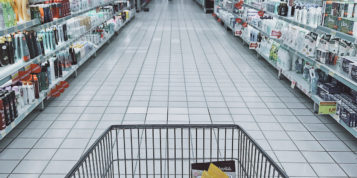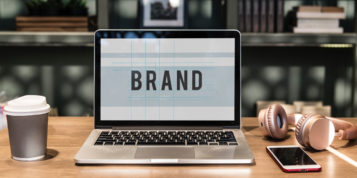Cosmetics brand Charlotte Tilbury is adored worldwide. The range of award-winning cosmetics, skincare and beauty tools have earned the company 268 awards, and Tilbury herself is a beloved makeup artist to celebrity clients including Nicole Kidman, Amal Clooney, Sofia Vergara, Kate Moss and Olivia Wilde. To celebrate the launch of a new store in LA, the brand gave away lip-shaped, cellophane balloons with vouchers for samples of luxury cosmetics. But in the days following, the deflated remains were strewn across the city. Users on Reddit and Twitter complained that the balloons might pollute the ocean or harm animals that tried to eat them, with a few saying they would stop using the brand’s products over the stunt. The outcry prompted the brand to issue an apology.
This is a sign that consumers’ interests in PR stunts are being outweighed by their commitment to sustainability. Times are changing, and the old PR and marketing stunts need to evolve. And as it’s Plastic Free July, as an industry, we’ve got a good excuse to think about our sustainability a little more. Plastic Free July is a global movement designed to encourage everyone to be part of the solution to plastic pollution – so we can have cleaner streets, oceans, and beautiful communities. And, as PR and marketing teams are the ones responsible for making companies look good, it makes sense that the onus should fall on us to think about sustainability.
As a B2B PR agency specialising in technology, energy and science PR, a lot of our clients are in the thick of the sustainability conversation, mainly around the technology that supports it and the scientific developments in the area. So, we wanted to get a better understanding of sustainability on a consumer level, mainly looking at how people view sustainability and what we can do as an agency to be a little greener.
First, TopLine Film surveyed 1,000 office workers on workplace sustainability. Nearly a quarter (24 percent) said they would refuse a job at an organisation with a poor sustainability record, and three quarters (73 percent) would like to see their workplace improve its sustainability record.
Then, in an attempt to inform our new sustainability policy, we surveyed our own team to see what ideas they had for us. Most of us (94 percent) are committed to protecting the environment and agree that we should have a sustainability policy in place. In addition, the team had some pretty good ideas of their own. Here are some of our tips for becoming a more sustainable PR agency or department, just in time for Plastic Free July.
- Eliminate single use plastic
This one might seem obvious but it’s a good place to start because it’s easy to implement and really effective. TopLine is officially a plastic-free zone and your office should be, too. If your budget allows, you can give everyone a reusable cup and straw to avoid the temptation of using a coffee cup, or you can encourage your team to bring their own. In addition, if you’re giving away drinks from your stand at a trade show, use biodegradable cups instead. People will notice and appreciate the effort.
- Mind your giveaways and decorations
As the Charlotte Tilbury debacle goes to show, we all need to think more carefully about giveaways. Freebies are fun, but if they create unnecessary waste and add to the world’s plastic problem then there’s a good chance your intentions will be ignored and you campaign will be criticised. Unless it’s a crucial piece of kit or part of your company, anything that can’t be recycled or reused should be dismissed early on. It’s also worth thinking about what you use to decorate your space, be it an event or your stand at a show. Foil balloons are a no, as is anything else that will just create more unnecessary waste.
- Build sustainability into the plan
The sooner you can discuss the sustainability of your PR project, the better. If you normally conduct team brainstorms to come up with ideas, or you use checklists, make ‘sustainability’ part of the starting template, so that it’s considered right from the start. That way, you’ll avoid having to change plans at the last minute and can give your team more time to come up with a more sustainable alternative.
- Ask your business partners about their sustainability commitments
Like many agencies, we work with a lot of suppliers. That means we’re just one part of the chain, and our sustainability can only make so much of an impact. Ask your partners about their commitments and if they haven’t got anything formally in place, share your ideas and help them to get on track. Alternatively, they might have great ideas to borrow.
- Understand your clients’ sustainability goals
If they haven’t already, it’s likely that clients will start being asked about their sustainability commitments, so it’s important to be prepared. First, determine their sustainability goals for the company. That will give you not only an idea of what type of support they need but can also prove whether they even consider it an issue that needs dealing with. They might’ve even made strides that are worth creating a campaign about.
- Talk about sustainability in company meetings and chat channels
Sustainability is a mindset. It’s about changing everyday behaviours and becoming more aware of your choices, so it’s important to keep talking about it. You can commit to sharing more sustainability content on your social channels and internal chat channels, or at least one environmentally-related story in weekly meetings.
Sustainability is now a crucial part of any PR strategy which means it’s important for all agencies and departments to understand. Taking responsibility for it in our own teams will set the right example and help to keep it top of mind.





